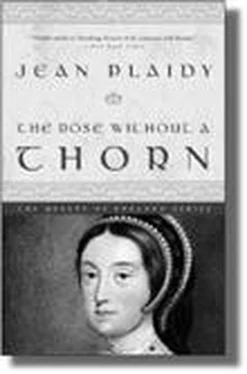Jean Plaidy - Mary, Queen of France - The Story of the Youngest Sister of Henry VIII
Здесь есть возможность читать онлайн «Jean Plaidy - Mary, Queen of France - The Story of the Youngest Sister of Henry VIII» весь текст электронной книги совершенно бесплатно (целиком полную версию без сокращений). В некоторых случаях можно слушать аудио, скачать через торрент в формате fb2 и присутствует краткое содержание. Жанр: Старинная литература, на русском языке. Описание произведения, (предисловие) а так же отзывы посетителей доступны на портале библиотеки ЛибКат.
- Название:Mary, Queen of France: The Story of the Youngest Sister of Henry VIII
- Автор:
- Жанр:
- Год:неизвестен
- ISBN:нет данных
- Рейтинг книги:4 / 5. Голосов: 1
-
Избранное:Добавить в избранное
- Отзывы:
-
Ваша оценка:
- 80
- 1
- 2
- 3
- 4
- 5
Mary, Queen of France: The Story of the Youngest Sister of Henry VIII: краткое содержание, описание и аннотация
Предлагаем к чтению аннотацию, описание, краткое содержание или предисловие (зависит от того, что написал сам автор книги «Mary, Queen of France: The Story of the Youngest Sister of Henry VIII»). Если вы не нашли необходимую информацию о книге — напишите в комментариях, мы постараемся отыскать её.
Mary, Queen of France: The Story of the Youngest Sister of Henry VIII — читать онлайн бесплатно полную книгу (весь текст) целиком
Ниже представлен текст книги, разбитый по страницам. Система сохранения места последней прочитанной страницы, позволяет с удобством читать онлайн бесплатно книгу «Mary, Queen of France: The Story of the Youngest Sister of Henry VIII», без необходимости каждый раз заново искать на чём Вы остановились. Поставьте закладку, и сможете в любой момент перейти на страницу, на которой закончили чтение.
Интервал:
Закладка:
Before long distinguished visitors came to Westhorpe. The children, who were playing in the nurseries, were the first to see the approach of the party and ran down into the gardens to tell their parents.
Mary was in the enclosed rose garden gathering the blooms which she herself would arrange later; Charles sat on a wooden bench near the fish pond which was a feature of this garden, marveling at the enthusiasm with which his wife still performed all these simple tasks. He could not believe that she would continue to do so. He often felt that he wanted to live every minute of his new life to the full, because he was certain it must change. They would not be long left in peace.
Anne led the two little girls into the rose garden crying: “Dearest Father and Mother, there is a crowd of people riding on the road.”
The little one who had been given the name of the Water Nymph, usually shortened to Nymph, ran to Charles and was lifted up and placed on his shoulder.
“A party of riders,” said Mary placidly. “I wonder if they are coming to Westhorpe.”
“They look as if they are coming to Westhorpe,” said Anne.
“Then mayhap we had better go and see who our visitors are,” Charles said.
Mary held one of the roses to her nose. She had no wish for visitors. Visitors could mean the disruption of the peaceful routine, and this was the last thing she wanted.
“The scent of these roses is delicious.” She made them all smell in turn; and because the children were most contented when they were with Charles and Mary, they were as ready to forget about the visitors as she was.
But they could not ignore the sounds of excitement; and soon a servant, flushed of face and bright of eye, came to break the peace of the rose garden.
“My lord, my lady, the Queen’s party is here.”
“The Queen!” cried Mary. “And the King?”
The servant looked aghast, as though that would be too much to be borne. It was enough that the Queen alone was here.
Mary and Charles, the children following, made their way to the courtyard where, looking exhausted and weary with the long journey, was Katharine.
Mary embraced her and Charles knelt. Katharine was smiling. “I am so glad to be here,” she said. “The journey has been tedious.”
“And you are in need of refreshment and rest,” Mary said. “We are delighted that you should so honor us.”
With Charles on one side, Mary on the other, Katharine was conducted into the hall of Westhorpe.
“So this is where you are hiding yourself away,” said Katharine.
Then she saw the children who had run up, the Nymph clutching at Charles’s doublet, his daughters keeping behind their stepmother.
“Your Grace has seen my large family?”
“Your family! I had thought there was but the boy.”
“I always wanted a large family,” laughed Mary. “And you know my impatience. Well, I have four children already. Who could do better than that in such a short time?”
The children were presented to Katharine, who patted their heads tenderly.
She sighed and turning to Mary said: “I have just been on a pilgrimage to the shrine of Our Lady of Walsingham.”
Mary knew for what reason; Katharine was praying that she might bear the King a son.
When Katharine had rested in the apartments which had been made ready for her as soon as she entered the house, she wanted to see the nursery; and as Mary watched her bending over the cradle of her son, she felt a deep pity for her sister-in-law. Never, since her great happiness had come to her, had she felt as grateful as she did at that moment. How easy it was for the lives of royal people to go awry.
“Mine never shall,” she told herself fiercely.
Katharine, returning to Court, talked to Henry of the household at Westhorpe. Henry was amused; he laughed heartily.
“So she has become a simple country woman, has she? How long will she be contented with that life? Depend upon it ere long she will be requesting to come back to Court.”
Katharine was not so sure, but she rarely disagreed with the King’s opinion; and when Henry heard of the nurseries of Westhorpe containing three little girls and a bonny boy—Mary’s own son at that—he became glum.
He wanted to hear all about the boy, and Katharine was not sure which would have distressed him more, to have learned that his nephew was ailing or, the truth, that he was a healthy boy.
When Katharine told him: “Little Henry is growing so like you,” he was pleased but almost immediately disgruntled because he had not a boy to whom he could give his name.
“I feel so much much better since my pilgrimage to Our Lady of Walsingham,” Katharine told him. “I am certain that she will soon answer my prayers.”
But of course she would, thought Henry. There was his good and pious wife. As for himself, did he not hear Mass regularly? Was he not as devout as God could wish?
He was suddenly good-humored. “We will have a merry masque,” he declared. “My sister Margaret will soon be with us. We must show her how we amuse ourselves here in England, for I believe the Scots to be a dour race. Now if we should have a tourney our champions must be there. Suffolk must come back to Court and Mary must greet her own sister.”
Katharine remembered, a little sadly, the country idyll she had disturbed, and imagined the messengers arriving there with the King’s orders.
Moreover she thought of Mary, the mother of a son, being at Court with Margaret who also had a boy. Henry would be delighted to have his sisters at his Court, but he was going to be very envious of them.

The Birth of Frances
WHEN THE KING COMMANDED, there was nothing to do but obey.
Reluctantly Mary said goodbye to the peace of the country. She left governesses and nurses in charge of the children with her own special instructions as to the care which was to be taken of them. Then sadly she rode away from Westhorpe.
Charles laughed at her melancholy.
“Once you are back you will realize how much you miss the pageantry and splendor at dull old Westhorpe.”
“Do you know me so little then?”
“But you used to love to dance, and did so more tirelessly than any.”
“That was when I thought it was an accomplishment to dance. If it is, I no longer care.”
“Do not grieve. You will soon be back again.”
“There is Margaret to entertain. And Henry may refuse to let us go. Oh, Charles, in the joust, you must take care. …”
“I can face any who rides against me, you know.”
“The one I fear most is my brother. Never unhorse him, Charles. Always remember … he must be the victor.”
Charles laughed. “Dearest, you seek to teach me a lesson which I mastered years ago.”
She was silent. “I am growing a little afraid of Henry,” she said after a while. “He is changing. I loved him dearly … I still do. When he was a boy, and I seemed so much younger, I thought him perfect. But since he has come to power …”
“Ah. Power is not always good for a man.”
“And supreme power, Charles. …” She shivered. “There are times when I am so sorry for Katharine. She was pathetic, Charles, when she looked at our little Henry and I fancy that my brother has not been kind to her, and has implied that it is her fault they have no son.”
“They’ll get a son in time.”
“They have been unlucky so far.”
“Well, they have Mary. Katharine can produce healthy children, it seems.”
“You understand now why I do not wish to leave Westhorpe. It contains all my treasures when you are there, and I want to keep them safe.”
Читать дальшеИнтервал:
Закладка:
Похожие книги на «Mary, Queen of France: The Story of the Youngest Sister of Henry VIII»
Представляем Вашему вниманию похожие книги на «Mary, Queen of France: The Story of the Youngest Sister of Henry VIII» списком для выбора. Мы отобрали схожую по названию и смыслу литературу в надежде предоставить читателям больше вариантов отыскать новые, интересные, ещё непрочитанные произведения.
Обсуждение, отзывы о книге «Mary, Queen of France: The Story of the Youngest Sister of Henry VIII» и просто собственные мнения читателей. Оставьте ваши комментарии, напишите, что Вы думаете о произведении, его смысле или главных героях. Укажите что конкретно понравилось, а что нет, и почему Вы так считаете.












